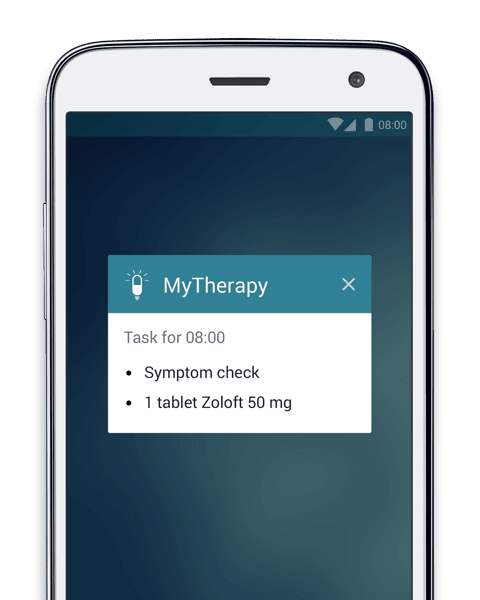PCOS (polycystic ovary syndrome) is a common hormonal disorder affecting 10% of women of reproductive age. There is no definitive way to diagnose this disorder and it has no cure. However, lifestyle adjustments and the use of medication can help to mitigate the symptoms.
Types of PCOS:
Before breaking down the symptoms and treatments of PCOS it’s important to understand that there are different types of PCOS, which share many of the same characteristics but differ in their underlying causes. Understanding the specific cause of the disorder is essential when deciding on a course of treatment. The four types of PCOS are:
- Insulin-resistant PCOS – Caused by high insulin levels which drive androgens.
- Post-pill PCOS – This type of PCOS is common when coming off a drospirenone or cyproterone pill and symptoms typically subside over time.
- Inflammatory PCOS – Inflammatory PCOS occurs when chronic inflammation stimulates the ovaries to make excess testosterone.
- Adrenal PCOS – This type of PCOS isn’t driven by any of the underlying causes listed above, but is often linked to high-stress levels.
PCOS Hair Loss, Weight Gain, And Other Symptoms:
Patients with PCOS can experience a wide range of symptoms. The most common are:
- Irregular or missed periods
- Acne or oily skin
- Hair Loss
- Weight Gain
- Excessive Body Hair
- Difficulty Getting Pregnant
Of these symptoms, acne, weight gain, and hair loss are among the most common, and for many, the most frustrating. Luckily, even though it isn’t possible to cure the condition, these symptoms are all treatable.
Acne:
Acne is a result of the oily skin often caused by PCOS and linked to excess hormones. To manage it, it's important to wash the face twice daily and any time after sweating, although washing it gently as opposed to scrubbing it is advisable. It may also help to avoid excess sun exposure Additionally, it is best not to pop pimples since this may lead to scarring.
Weight Gain:
Weight gain can be an incredibly frustrating symptom of PCOS. Fortunately, through some lifestyle changes and the dieting we discuss in this post, it’s possible to maintain a healthy weight. The first step is to try and reduce your carb intake. This will help your body regulate insulin better and will help with losing weight in general. It’s also important to eat fiber since this will slow your digestion and help lower insulin resistance. It can also help to eat healthy fats; these will help you feel more satisfied after meals without the negative effects of other fatty foods. Some examples of healthy fats are avocado, olive oil, coconut oil, and peanut butter.
Hair Loss or Excess Body Hair:
While many women experience unusual hair growth on their face and body, it is also common to experience hair loss. Some women may simply cover up patches of hair loss by styling it differently or by wearing a partial wig. However, it is possible to get medical treatment such as a hair transplant or prescription.
PCOS Treatment:
There is not yet a cure for PCOS. Fortunately, there are a variety of treatments. Treating PCOS usually involves treating whichever symptoms are a concern for the individual as the condition itself can’t be dealt with. Lifestyle changes, which will be discussed in the next section, are often the first line of defense. If lifestyle changes alone are not effective, medications can be prescribed to treat specific symptoms.
For Regulating Menstrual Cycles:
- Birth Control Pills
- Progestin Therapy
For Ovulation:
- Clomiphene
- Letrozole
- Metformin
- Gonadotropins
For Reducing Excess Hair Growth:
- Birth Control Pills
- Spironolactone
- Eflornithine
- Electrolysis
Diet and Supplements:
If you or someone you love suffers from PCOS, making lifestyle changes and implementing an improved diet can help. If you have insulin resistant PCOS, managing blood sugar levels is important. High-fiber foods are a great way to do that; by slowing down digestion, the impact of sugar on the blood can be reduced. Some great choices for foods high in fiber are:
- Cruciferous vegetables
- Lettuce and arugula
- Bell peppers
- Lentils
- Beans
- Berries
- Almonds
- Pumpkins and squash
For patients with inflammatory PCOS, foods that reduce inflammation are beneficial. Some great options include:
- Tomatoes
- Kale
- Almonds
- Olive Oil
- Fruit
- Spinach
- Foods high in omega-3 acids
In addition to adding foods that reduce the symptoms of PCOS, there are foods that patients should try and avoid as they can increase inflammation and exacerbate insulin resistance. Some of the most common foods that can contribute to inflammation are:
- White bread
- Pastries
- Sugary foods
- Foods with white flour
- Muffins
Aside from dietary changes, supplements may aid in reducing symptoms. It is worth noting, however, that if you plan to take supplements you should first speak with your doctor as they can affect you differently depending on your health and other medications you may be taking. Supplements containing the following may be able to aid in the treatment of PCOS:
- Inositol – As one of the most commonly used supplements for PCOS, Inositol may be able to help women regulate both androgen and insulin levels. In turn, this can greatly reduce the symptoms of PCOS.
- Chromium – Chromium supplements your BMI, which may be able to help with PCOS. Additionally, it may be able to stabilize insulin resistance by improving your body’s ability to process sugar.
- Zinc – Aside from the general benefits of a boosted immune system that zinc provides, if you’re trying to get pregnant, PCOS can help with fertility.
PCOS and Pregnancy:
A challenging aspect of PCOS for many women is that they may struggle with becoming pregnant and may have complications if they do. However, through proper management of the condition, many women can successfully become pregnant and give birth to a healthy baby.
Getting Pregnant:
PCOS often leads to difficulties getting pregnant due to the high levels of male hormones in the body preventing ovulation. While we did mention some medications above that may increase the frequency of ovulation, your doctor will likely first recommend some lifestyle changes to increase your chances of getting pregnant:
- If you are overweight, try to come closer to a healthy weight
- Eat a healthier diet (see the guidance given above)
- Exercise regularly
- Monitor ovulation and the length of your cycles
PCOS During Pregnancy:
If you are pregnant with PCOS, the risk of complications during pregnancy are increased. It may lead to:
- Premature Birth
- Gestational Diabetes
- Hypertension during pregnancy
- Miscarriage
If you are pregnant and have PCOS it is critical that you speak with your doctor. Mitigating the risk of complications is possible but only by closely monitoring symptoms and taking extra care throughout the course of the pregnancy.
Here are some other posts we think you might enjoy:
How Exercise Can Lower Your Cholesterol & Keep Your Heart Healthy



